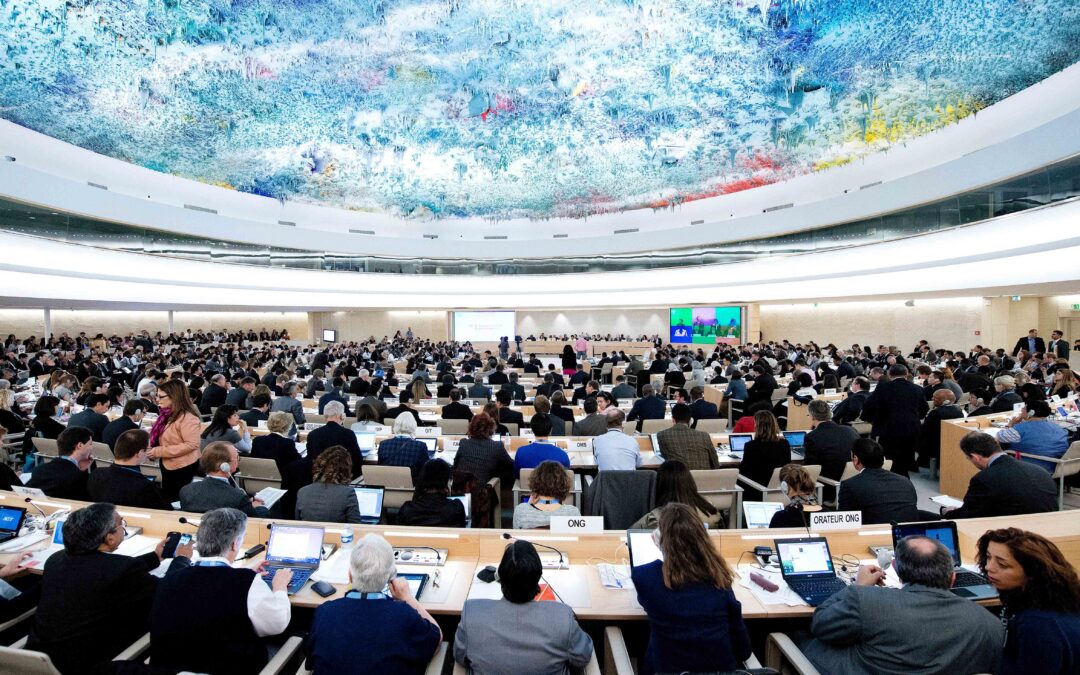
Mar 2, 2015 | Advocacy, Open letters
The ICJ today joins with dozens of other NGOs from around the world in an open letter calling for the UN Human Rights Council to establish a Special Rapporteur on Privacy at its current session.
The UN General Assembly, the UN High Commissioner for Human Rights, existing special procedure mandate holders, and many states and civil society organisations have recognized the pressing need to provide continuous, systematic and authoritative guidance on the scope and content of the right to privacy as enshrined in article 12 of UDHR and article 17 of ICCPR. Significantly, all of them have identified the need to assess and monitor the ongoing implementation of this right. The creation of a Special Rapporteur would fill this long-standing gap.
Although the initiative, led by Germany and Brazil, has its origins in concerns about online and telecommunications surveillance, the call is for the creation of a Special Rapporteur with a mandate to look at all aspects of the right to privacy, in all contexts, including issues relating to private sector practices.
HRC28-SRPrivacy-Advocacy-JointLetter-2015

Sep 12, 2014 | Advocacy
ICJ supported a joint written statement by civil society organizations highlighting threats to privacy and other human rights engendered by electronic surveillance, and calling for the establishment of a UN mechanism on the issue, as the UN Human Rights Council discussed the issue in Geneva.
The organizations urge the Council to establish a dedicated special procedure mandate on the right to privacy for the following reasons:
- A dedicated mandate holder would play a critical role in developing common understandings and furthering a considered and substantive interpretation of the right across a variety of settings, as recommended by the report. A dedicated mandate holder would also be an independent expert, allowing for a neutral articulation of the application of the right to privacy that draws on the input of all stakeholders.
- Establishing a separate mandate for privacy would allow for the development of a coherent and complementary approach to the interaction between privacy, freedom of expression, and other rights.
- A dedicated mandate holder would help assess the implementation by state and non-state actors of their applicable international responsibilities and obligations in a sustained and systematic way. Functions should include carrying out country visits; collecting best practices; receiving and seeking information from states, businesses, and other stakeholders; and issuing recommendations.
The full written statement, submitted by Human Rights Watch and endorsed by the other organisations, can be downloaded here (ICJ-UN-HRC27-JointStatementPrivacy-12092014) in PDF format.

Sep 20, 2006 | News
The ICJ welcomes today’s decision of the Hong Kong Court of Appeal in the case of William Roy Leung vs Secretary for Justice.
The Hong Kong Court of Appeal upheld the decision of a lower court that a provision of the Hong Kong Crimes Ordinance (section 118C) was discriminatory based on sexual orientation, as it prohibits consensual male homosexual sex until both parties are above 21 years old. The Court also affirmed that this provision constitutes an arbitrary interference on the right to privacy.
“The decision is a vindication of the right to equality before the law and non discrimination and is consistent with Hong Kong’s obligations under the International Covenant of Civil and Political Rights, ” said Philip Dayle, Legal Officer at the ICJ.
The Crimes Ordinance criminalizes parties to consensual male homosexual sex even if both participants are over 16 years of age, but one party is under the age of 21. Consensual sex between heterosexual persons who are above the age of 16 is not similarly outlawed. The Court reasoned that, “…section 118C of the Crimes Ordinance significantly affects homosexual men in an adverse way compared with heterosexuals.”
The ICJ offered an exposition of the international human rights and comparative public law analysis in relation to sexual orientation in this matter. This intervention was incorporated in the amicus brief of the Equal Opportunities Commission of Hong Kong and was presented to the court.
Both the decision of the court of appeal and the ICJ arguments in this matter are available on the ICJ website
Hong Kong-Roy court appeal-Press releases-2006 (full text, PDF)







